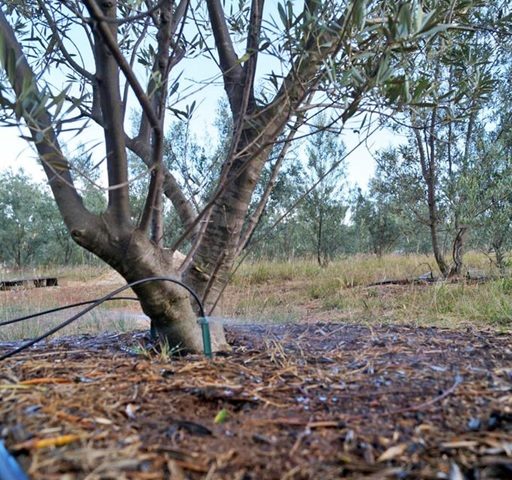Olives and olive oil have long been cherished for their culinary, economic, and cultural significance. However, the environmental impact of traditional olive farming practices has become a matter of concern, as unsustainable methods can lead to soil degradation, water scarcity, and biodiversity loss.
The Environmental Challenges of Conventional Olive Farming:
- Soil Degradation: Monoculture olive cultivation, coupled with a lack of crop rotation, can lead to soil degradation. This decline in soil fertility and structure makes it more susceptible to erosion, which can ultimately harm the ecosystem and agricultural productivity.
- Water Scarcity: Olive trees require substantial water resources, particularly during the fruiting season. In regions already grappling with water scarcity, excessive irrigation can exacerbate the problem and contribute to the depletion of groundwater reserves.
- Loss of Biodiversity: The conversion of natural habitats into monoculture olive groves often involves the removal of native vegetation. This can lead to a decline in local biodiversity and disrupt the delicate balance of ecosystems, affecting both the environment and the agricultural sector.
Here are some key strategies to achieve this balance of environmental impact and sustainability in olive farming:
- Adopting eco-friendly farming practices: Implementing sustainable farming methods like crop rotation, intercropping, and organic farming can reduce the use of chemical fertilizers and pesticides, thereby minimizing environmental harm. These practices also improve soil health, which ultimately benefits the olive trees.
- Energy-efficient irrigation systems: Water management is vital in olive farming. Installing drip irrigation systems or using advanced technology like soil moisture sensors can help optimize water usage, reducing wastage and promoting water conservation.
- Agroforestry: Integrating olive trees with other tree species or crops on the same land can create a more diverse and resilient ecosystem. This approach can also improve soil fertility, reduce erosion, and provide habitat for wildlife.
- New varieties of olive trees: Due to drought, farmers can plant or replace olive trees with varieties of olive trees that need less water, such as: Picual in Spain.
- Waste management: Utilizing olive mill waste, such as pomace, for biogas production or as a natural fertilizer can minimize waste and contribute to a circular economy. The solid residues of olive mills can follow the path of composting and use the produced compost as a soil improver. In fact, both leaves and liquid waste from olive mills can be used in composting. By using compost in various crops they showed that the yields obtained with organic fertilization are the same and sometimes higher than those obtained with a balanced mineral fertilizer.
- Educating and engaging with the community: Raising awareness about sustainable olive farming practices among farmers, consumers, and policymakers can encourage the adoption of eco-friendly methods and drive positive change in the industry.
By embracing these strategies, olive farmers can create a sustainable and environmentally friendly future for their industry, benefiting both the planet and future generations.



